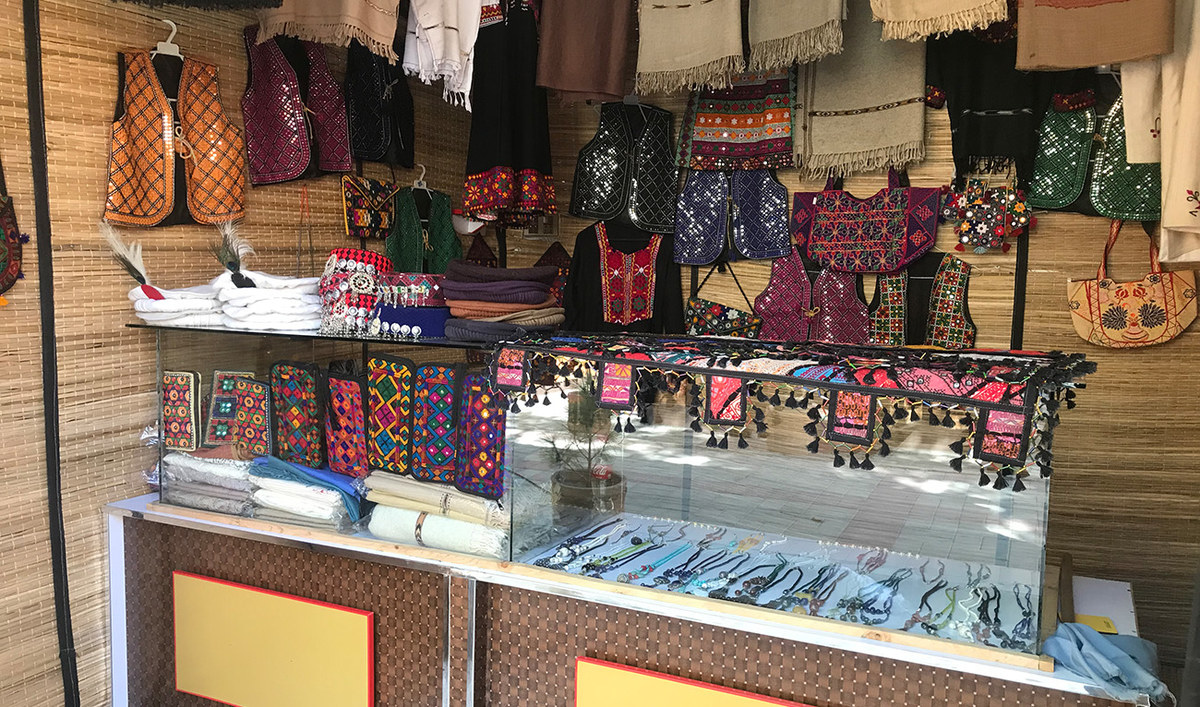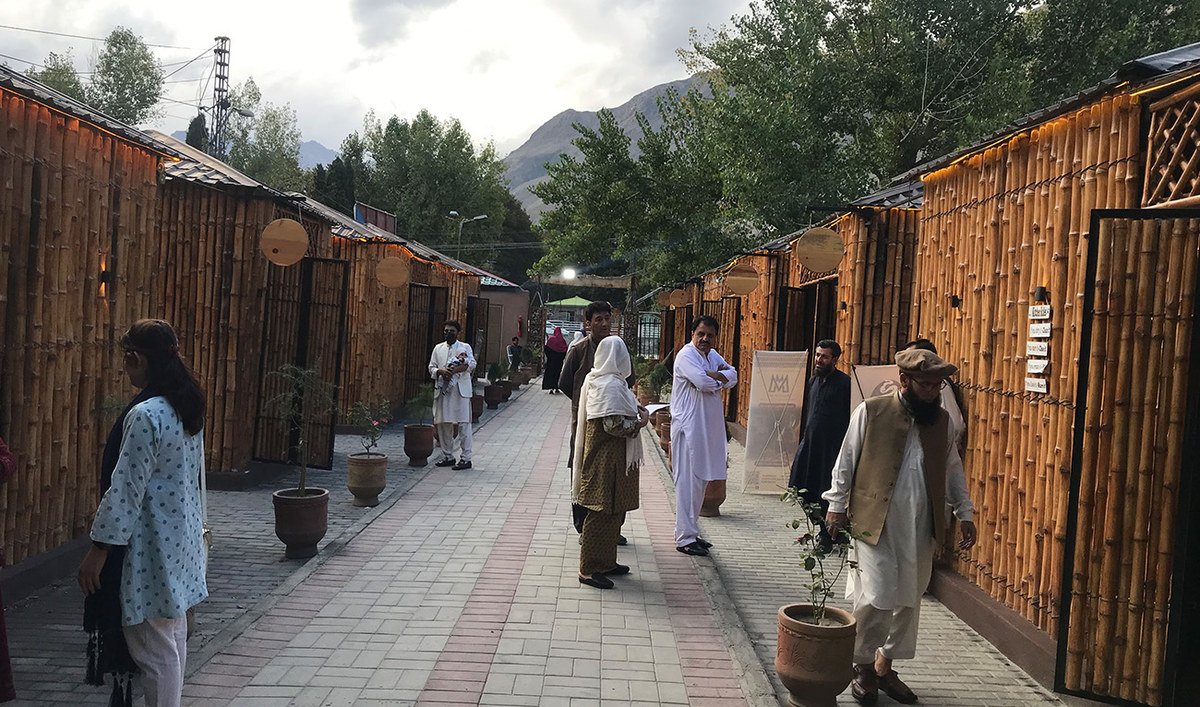GILGIT: Every day at the break of dawn, 28-year-old Haseena Farman unlocks her riverside shop of handcrafted shawls, sweaters, gemstones and decorative items and waits for customers.
Business has been going well since she opened the store in a recently inaugurated, eco-friendly women’s market that has become a godsend for women entrepreneurs in the mountainous northern city of Gilgit.
The market, which was inaugurated in August and has 24 shops so far, is a joint project of the Gilgit Development Authority and the Women Chamber of Commerce and Industry and has, in the words of businesswomen like Farman, given them a “special place” of trade in a region where, like many other parts of Pakistan, cultural and religious norms and social expectations act as barriers to prevent women’s entry into the business sector.
According to Gilgit-Baltistan’s Education Department, the female literacy rate in the area has been recorded at 41 percent while the male literacy rate has been recorded at 66 percent. Despite high literacy rates, women form only 15.5 percent of the labor force in Gilgit-Baltistan, according to data by the Agha Khan Rural Support Network, a non-profit company.
“Earlier, we [women] didn’t have a special space [to sell our products],” Farman told Arab News. “I used to make these items for my cousins, relatives and sisters … After the opening of this market, we have got a proper setup.”

The photo taken on September 30, 2023 shows a shop at the Gems and Handicraft Market in Gilgit, Pakistan. (AN Photo)
“So far, it’s going well and I hope it will also continue to be like this in the future.”
Razia Asif, another female entrepreneur at the market who sells gems, jackets and decorative items, said she used to sell her goods from home until the market launched.
“We opened this shop a month ago,” she said. “We have been given the opportunity by the government to bring our products to market.”
Speaking to Arab News, GDA director Sajid Wali described the market as a “one-stop shop” to buy local handicrafts, gemstones, dried fruits and traditional cuisines at affordable rates while enjoying a beautiful riverside view.
Wali also hoped, he said, that the market would serve both as a bustling tourist spot in the near future while empowering women of the region at the same time.
“We know the women of Gilgit-Baltistan have the skills,” he said.

The photo taken on September 30, 2023 shows a videw of the Gems and Handicraft Market in Gilgit, Pakistan. (AN Photo)
“However, only a limited number of products prepared by them reach our markets due to lack of opportunities. Their [home-based] businesses don’t run very smoothly all the time. We know these things and have tried to bring these women into a proper retail market.”
Mubareka Gul, an executive member of the Women Chamber of Commerce and Industry in Gilgit division, said women of the area previously found it difficult to market and sell their goods.
“For the first time in history [in Gilgit], women can run these businesses in a friendly environment under tight security,” she said. “This is a family market and families come and visit this place.”
“The women trained by us, who did not have direct market access, have become successful due to the government of Gilgit-Baltistan and the Women Chamber of Commerce,” Gul added. “We hope that this market will become a business hub.”
Gul urged the public to visit the newly inaugurated trade center with family members and explore the products being sold.
“I have visited this market two, three times,” Sultana Karim, a visitor, told Arab News as she bought cushions for her drawing room.
“Each time it is a pleasure to come here because a variety of products are available.”














